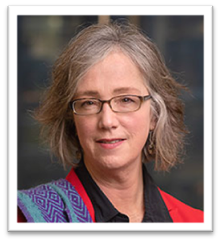Mary L. Nucci, PhD
Assistant Professor, Human Ecology; Assistant Dean Community Engagement
Human Ecology, SEBS
Email: mnucci@sebs.rutgers.edu
Dr. Mary Nucci is an Assistant Professor in the Department of Human Ecology at SEBS. She teaches courses in science communication, directs the Minors in Science Communication and Science Outreach, created and manages the SEBS Science Cafes and Alterative Careers in Science programs, and co-created and manages the Science Communication Initiative, a network of Rutgers faculty, staff and students who promote research, teaching and training in science communication. She also serves as Assistant Dean, Community Engagement (SEBS) where she is responsible for developing and leading co-curricular activities to generate school-wide engagement among faculty, students, and staff.
Project Sponsor
Laura Lawson, PhD
Interim Executive Dean of Agriculture and Natural Resources
SEBS
Abstract:
As a land grant school, the School of Environmental and Biological Sciences (SEBS) has a historical responsibility to engage with the local community. This can be seen in the Rutgers University motto “Jersey Roots, Global Reach” which recognizes that while Rutgers is training its students to be global citizens and researchers, there is a need to connect students to local communities. Place-based experiential learning (PBEL) allows students to see and apply the concepts that are addressed in their courses, increases content knowledge, research and critical thinking skills, self-efficacy, and desire to remain in science (NRC, 2000; Sobel 2004; PCAST 2013; Usher et al., 2008). Thus, the integration of PBEL into curricula can contribute to student success and retention and to local stewardship by increasing systems thinking, the understanding of knowledge sources (ways of knowing), and eco-justice (Gruenewald, 2003).
A number of challenges exist to effectively incorporate PBEL. One of these is that instructors may be unprepared or unaware of the value and/or effective practices for implementing PBEL; and unaware of the campus resources, both people and local environments, available to help them achieve learning outcomes (Angstmann et al., 2019). Positive outcomes from the work done by the Rutgers Raritan River Consortium (R3C) provides evidence that these challenges exist at Rutgers, but that a coordinated effort to communicate the availability and benefit of local resources helps to raise awareness.
The aim of this work is to further improve communication of the benefits and opportunities for meaningful PBEL and expand partnerships between Rutgers faculty, staff and local stakeholders. Long term outcomes may include greater engagement within SEBS/NJAES across units and roles, an improved perception of SEBS/NJAES among the general public and Rutgers stakeholders, and enhanced opportunities for students to earn EBE credits, engage in systems thinking, and increase engagement with STEM fields.
